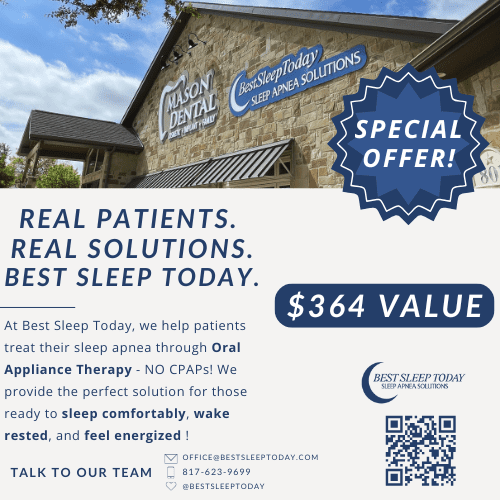
What is Snoring?
Snoring is a common sleep occurrence characterized by the harsh, loud breathing sound that occurs when air flows past relaxed tissues in the throat, causing them to vibrate. This physiological phenomenon happens when the airway becomes narrowed or partially blocked during sleep, often due to factors like the tongue falling back, excess throat tissue, or nasal congestion.
What are the Side Effects of Snoring?
While snoring may seem like a mere annoyance, it can have far-reaching consequences:
- Reduced sleep quality
- Disrupted sleep for partners or family members
- Daytime fatigue and decreased productivity
- Increased risk of developing obstructive sleep apnea (OSA), which can lead to more serious health issues like high blood pressure, heart disease, and stroke.
Snoring is often a symptom of your body’s fight for oxygen. If you ever have heard, or experienced, the gasping, choking, or startling awake that can accompany snoring, your body is likely being deprived of the oxygen it needs.
How Can I Stop Snoring?
Best Sleep Today offers two primary effective snoring treatment options to help you and your loved ones get a restful night’s sleep:
- Oral Appliance Therapy: These devices reposition the jaw and tongue to keep the airway open, preventing snoring. By maintaining the tongue and jaw’s forward position, the device increases the likelihood that the airway will remain open. Most patients who wear oral appliances from Best Sleep Today report a significant increase in deep, restful sleep with a reduction in daytime sleepiness, brain fog, and more.
- Solea Snore Therapy: While snoring is usually a symptom of a larger issue, we can help reduce or eliminate your snoring by using our Solea laser on the back of the throat. Solea works by gently tightening the collagen fibers of the soft tissue, reducing vibrations and helping to limit the disruptions and noise caused by snoring.
Frequently Asked Questions About Snoring
Does snoring mean I have sleep apnea?
Not necessarily. While snoring is a common symptom of obstructive sleep apnea (OSA), not everyone who snores has this condition. However, it’s essential to consult a healthcare professional if you experience excessive daytime fatigue, gasping for air during sleep, have high blood pressure, struggle to focus during the day, or have other symptoms of OSA.
Is snoring a serious health risk?
In most cases, snoring itself is not life-threatening. However, if left untreated, severe obstructive sleep apnea can increase the risk of serious health issues like high blood pressure, heart disease, stroke, and diabetes, which can be life-threatening.

Are oral appliances safe?
When used correctly and fitted properly, snoring mouthpieces are safe and effective for treating snoring and mild to moderate sleep apnea. However, it’s essential to follow the manufacturer’s instructions and consult a dentist or healthcare professional for guidance on the right device for your needs.
Will the oral appliance fit securely?
Each patient’s oral appliance is custom created for them. Dr. Mason and his team will create a digital scan of your mouth, ensuring precision and a secure fit. This means that your jaw will be perfectly positioned to open your airway and increase the flow of oxygen all night long.
Can children snore?
Yes, snoring can occur in children, often due to enlarged tonsils or adenoids, nasal congestion, or other airway obstructions. If your child snores regularly, it’s crucial to have them evaluated by a pediatrician to rule out potential underlying conditions and address the issue promptly.

Contact Best Sleep Today to Schedule a Sleep Apnea Consultation
With a combination of snoring treatment options and lifestyle modifications, you can effectively reduce or eliminate snoring and improve your overall sleep quality and health. To learn more about snoring, sleep apnea, or to schedule an appointment, contact us today!













